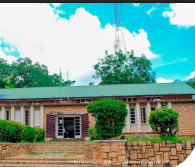Nigeria museums are not just repositories of history; they are living proofs of the country’s diverse cultures and artistic traditions. Bear in mind that Art imitates life.
National Museum, Abuja holds fascinating displays is the Danjuma Gallery, which features works by contemporary Nigerian artists making waves on the global art scene. The museum also has a remarkable collection of sculptures, textiles, and pottery from the various ethnic groups of Nigeria.
The National Commission for Museums and Monuments (NCMM), Jos- Founded in 1952, also called the Jos Museum is renowned for focusing on prehistoric art and artefacts, with a significant collection of Nok terracotta figures. The Nok culture is an ancient civilisation that dates back over 2,500 years in the Benue Plateau.

The museum also houses an extensive collection of Nigerian artefacts, including traditional masks, beadwork, and textiles from across Nigeria. The Jos Museum is a must-visit for anyone eager to explore Nigeria’s early civilisations and their ties to the broader African continent.
Kalakuta Museum, Lagos – Fela Aníkúlápó Kútì (born Olufela Olusegun Oludotun Ransome-Kuti; 15 October 1938 – 2 August 1997) was a Nigerian musician and political activist. He is regarded as the principal innovator of Afrobeat; for those interested in music and cultural activism, the Kalakuta Museum offers a unique and inspiring experience. Located in the former home of legendary Afrobeat musician Fela Kuti, this museum delivers an intimate look into the life and legacy of one of Nigeria’s most iconic figures. Visitors will see personal items, album covers, and photographs that chronicle Kuti’s rise to fame and influence on Nigerian music and politics. The museum is a tribute to Kuti and the power of his music as a tool for social change in Nigeria
 .
.
The Bar Beach Market, also known as Jakande Art Market, is a treasure trove of an African culture-wide array of African-made products. From intricate beadwork and colourful clothing to beautifully crafted sculptures and furniture, the market offers a rich selection of items that reflect Nigeria’s diverse cultures. It’s not just a place to shop; it’s an experience that allows you to connect with the artisans and learn about their craft. As you wander the market, You can find everything from fresh fruits and vegetables to household items. Bar Beach Market is easily accessible via the Lekki-Epe Express road, making it a convenient stop for locals and tourists.
The market attracts tourists from far and wide, all eager to take home a piece of African culture.

The Marina Calabar Museum also known as the Slave History Museum exhibits the rich history of Calabar as a hub during the Atlantic slave trade. Prepare to have your curiosity piqued by various items spanning centuries,such as traditional Efik attire and ancient relics that whisper tales of long-gone eras, Esuk Mba Slave Market, Chains and Shackles, Procurement of Slaves, Shipment of Slaves and Abolition. Every artefact connects the past to the present. Don’t forget to check out the elaborate carvings and craftwork that showcase the ingenuity and artistry of the local culture.
What’s more exciting than passive admiring? Interactive exhibits! The museum has found a way to engage all your senses with hands-on displays and multimedia presentations. Feel the texture of traditional fabrics, listen to the sounds of historical reenactments, and watch visual narratives unfold before your eyes.
Let’s not forget that Marina Calabar Museum isn’t just about history. It’s also about location. The museum is right by the Calabar River, offering stunning views and the perfect backdrop for a serene post-visit reflection.

